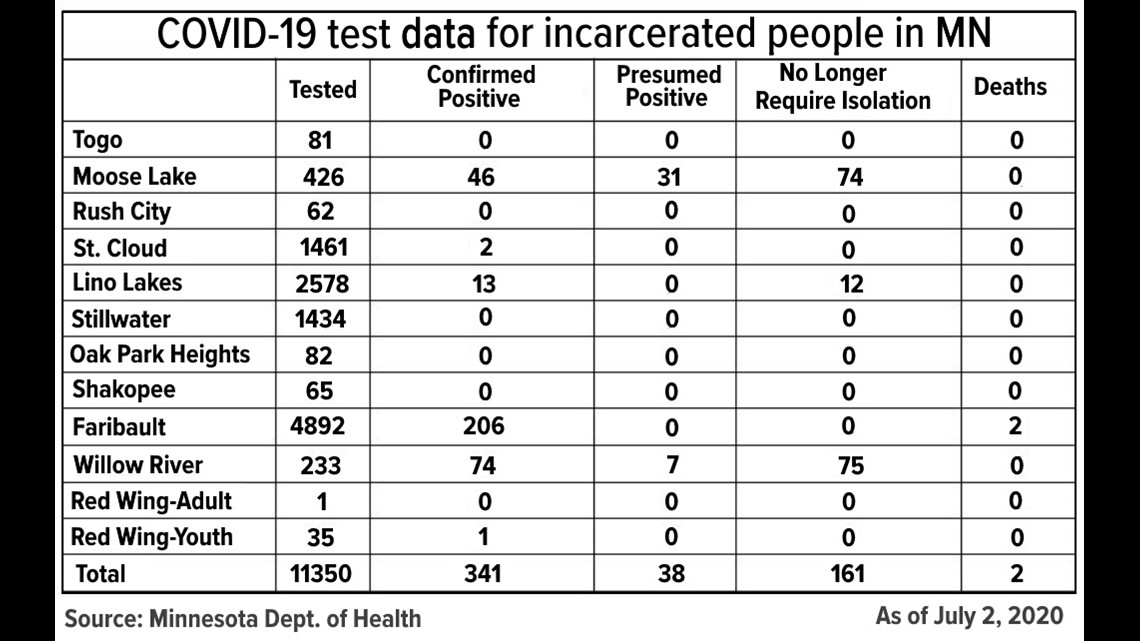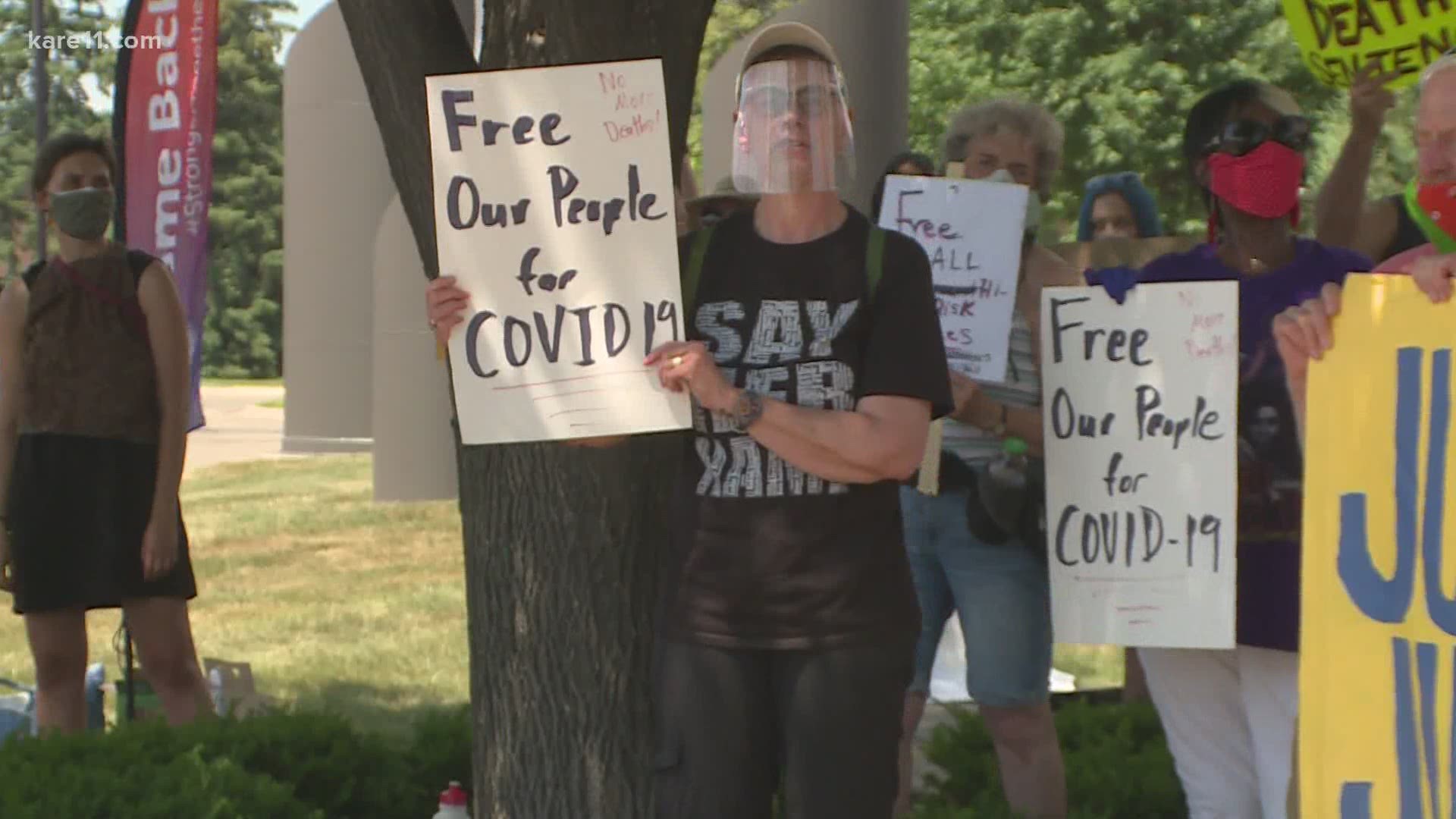ST PAUL, Minn. — The deaths of two Minnesota prison inmates from presumed cases of COVID-19 has reignited the push to send more prisoners home on early release plans.
A few dozen protesters from the Decarcerate Minnesota Coalition and the Twin Cities Incarcerated Workers Organizing Committee held a peaceful demonstration Thursday outside the Department of Corrections headquarters in St. Paul.
They're asking for work release or medical release for inmates who've tested positive for coronavirus or who've been exposed to people that tested positive. It follows months of car parade protests by the coalition outside prisons, drawing attention to the risks inmates face living in close quarters.
"We have these conditions inside that make a pandemic able to really grab a hold of people's lives. So, we're here to demand that the DOC start taking this seriously," Stephanie Brown told KARE as she fashioned homemade signs for the protest.
"We’re here to hold the DOC accountable, as well as Tim Walz, for these empty promises and empty rhetoric about how we need to reduce the prison."
Corrections Commissioner Paul Schnell said that so far 159 prisoners have been allowed to return to supervised release in the community after applying for conditional medical releases. The DOC has fielded more than 2,000 applications for the same type of release since the COVID-19 crisis began.
"The vast majority of them are denied for a host of reasons," Commissioner Schnell told KARE Thursday.
"And again, it's not because we're talking about bad people. In some cases it's because they have a lot of time left. In some cases, it may be they just got to prison."


The DOC has conducted more than 11,000 coronavirus tests of inmates across the system so far, with 341 positive and another 38 presumed positive cases. In addition to that, 61 staff members have tested positive.
The lion's share of infected inmates are at the prison in Faribault, with 206 positive tests. It's also the facility where both the fatal cases originated.
Inmate Adrian Raymaar Keys, who was 43 years old, died June 23 in the hospital, a full 19 days after he tested positive. And on June 27, a 71-year-old Faribault inmate, Leroy Wallace Bergstrom, also succumbed to the disease. A third Faribault prisoner remains hospitalized with a suspected case.
Bergstrom would've been eligible for supervised release, Minnesota's version of parole, in October of 2021. Keys had many years left on his sentence, so he likely wouldn't have been a candidate for early release.
In theory, inmates would face less exposure at home than they would in an institution with hundreds of others. But Schnell said in many cases the inmates seeking conditional medical release don't have a safer place to live yet.
"That's a major consideration; do they have a place to live? And to let somebody go from a congregate care setting here to a homeless shelter is not a good option for them."
Schnell said as a member of the executive branch he's bound by state laws and the sentencing decisions handed out by the courts, both of which create limits on releasing inmates. He conceded that Wisconsin has far outstripped Minnesota with 1,600 reported early releases of prisons, but also noted Wisconsin has 22,000 inmates compared to Minnesota's 8,000.
Protesters have also asked for a moratorium on former offenders being bounced back into prison on technical parole violations, such as alcohol use or missing a drug treatment appointment, during the COVID-19 crisis.
Minnesota is making progress in that area. The number of offenders returned to prison for parole violations has dropped from 177 in January to just 51 in June.
The state's prison population overall has dropped significantly, dropping from 8,900 on March 1 to 7,962 on July 1, so a reduction of more than 900 inmates.
In March, after outbreaks at Moose Lake and Willow River prisons, the DOC instituted tighter controls to keep inmates and staff from circulating between different units. Extra hand washing stations were also added throughout the facilities.
It's not clear what led to the spike in Faribault, which recorded its first positive case in early June. That led to ramped up testing which eventually revealed more than 200 positive cases of coronavirus.

